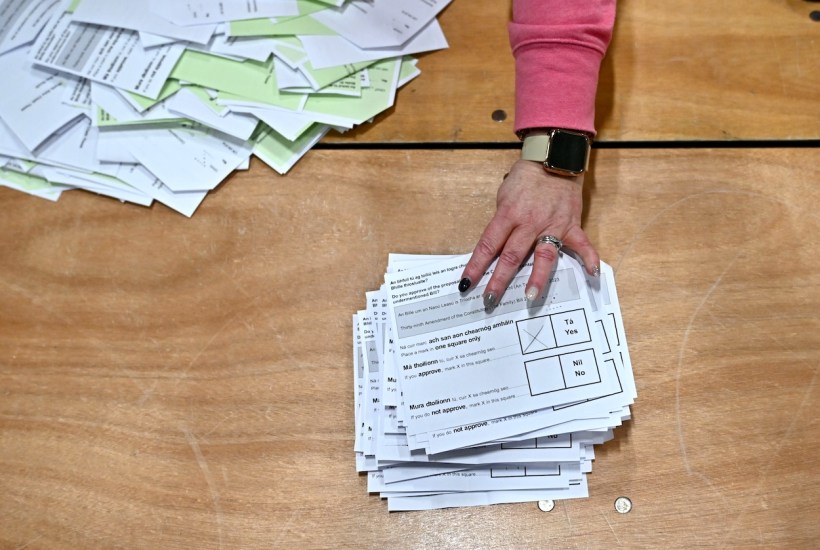It’s not been a particularly good weekend for the political establishment in Ireland. Two constitutional changes have been rejected by the electorate, despite being backed by all the mainstream parties – Fianna Fail, Fine Gael, Labour, Greens, Sinn Fein – plus the usual pundits and something called the National Women’s Council (a quango which is meant to represent women but somehow doesn’t).
Already a subscriber? Log in
Subscribe for just $2 a week
Try a month of The Spectator Australia absolutely free and without commitment. Not only that but – if you choose to continue – you’ll pay just $2 a week for your first year.
- Unlimited access to spectator.com.au and app
- The weekly edition on the Spectator Australia app
- Spectator podcasts and newsletters
- Full access to spectator.co.uk
Or




















Comments
Don't miss out
Join the conversation with other Spectator Australia readers. Subscribe to leave a comment.
SUBSCRIBEAlready a subscriber? Log in